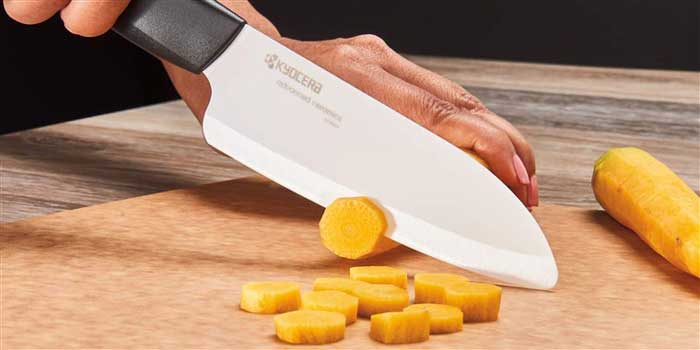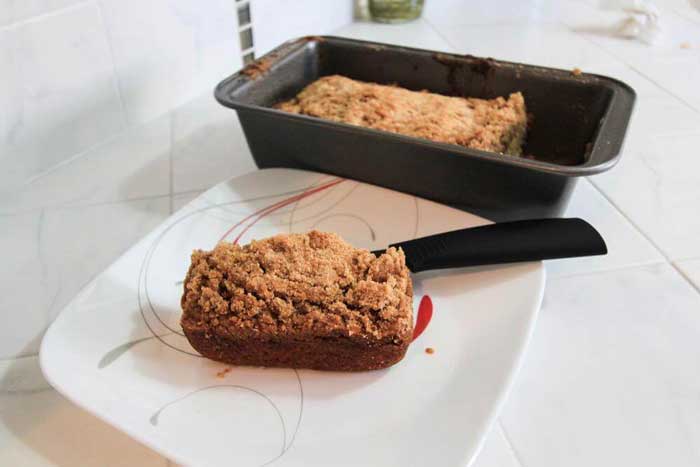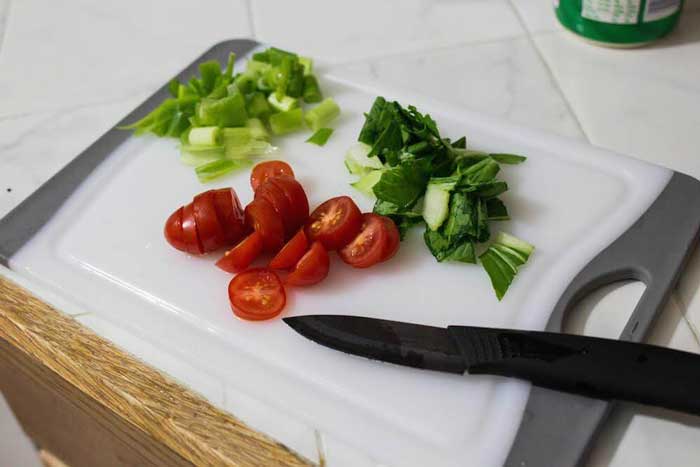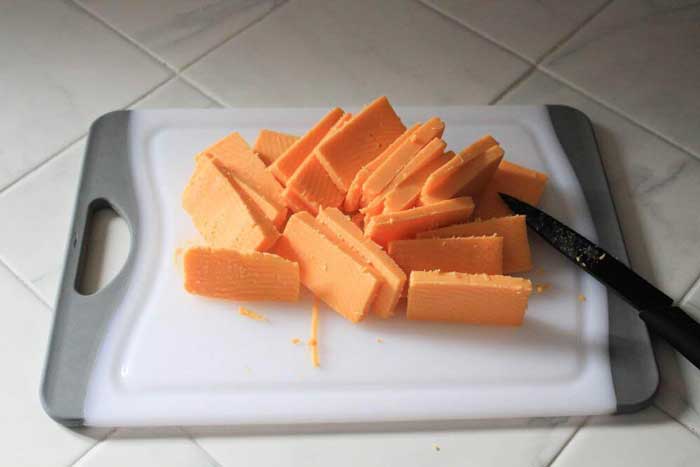During recent years, the need for ceramic knives has diminished greatly due to the rise of steel knives and cutlery.
Most households tend to own steel knives because of its insurgence in different types of cookware and its mass budget-friendly options in the market.
However, despite its popularity, many professionals and expert home cooks often prefer ceramic knives to steel ones.
There are both pros and cons of ceramic knives, depending on the type of ingredient you’re trying to cut up.
This is why this article will help you decide whether or not investing in ceramic knives is better for your kitchen and cooking habits than your current steel cutlery sets.
What Are Ceramic Knives?
Ceramic knives are made using the same material as your ceramic mugs and bowls, which is why it’s much stronger and often more durable than your standard steel knife.

These knives are made from a material called “advanced ceramic,” which is much stronger than carbide, carbon steel, and even titanium.
This material makes them harder to sharpen manually or at home, as it usually requires a material that’s stronger, which is usually just diamonds.
Ceramic vs Stainless Steel
If you consider yourself a professional in the kitchen, then it’s best to know the advantages and disadvantages of owning a ceramic knife rather than a steel knife.
To learn more about the extent of the advantages to disadvantages ratio when it comes to owning ceramic knives.
Sharpness
A steel knife in most aspects is much less durable than a ceramic knife, as it tends to lose its sharpness quite fast.
And sharpening steel knives at home is no incredible feat. As it becomes dull quite easily, it’s best to buy a sharpening tool if you’re planning to use only steel knives.

Ceramic knives, on the other hand, usually stay sharp for much longer, and it’s extremely difficult to manually sharpen.
This is why top manufacturers tend to offer their customers a free sharpening anytime, as dullness is usually a rare occurrence.
Lightweight
Ceramic knives are significantly more lightweight than steel knives, which is why it’s easier to maintain balance while you’re cutting delicate ingredients.
It also puts much less strain on your wrist and arms so you can easily and steadily cut most meats like a pro. All the professionals value the importance of balance when cutting and chopping meats.
Hygiene
Ceramic knives are much more hygienic because of its lack of pores in the material.
With fewer pores, the material tends to absorb less odor, grime, and dirt from any ingredient that you’re chopping up.
Steel knives often carry certain smells and spices from one ingredient to the next if it’s not thoroughly rinsed off. However, in terms of ceramic knives, just a quick rinse with warm water will easily get the job done.
Pros of Ceramic Knives
Despite being a rare tool in both household and professional kitchens, there are several important benefits of owning ceramic knives that are often overlooked by most novice cooks.
Lightweight
Ceramic knives are extremely lightweight and tend to weight much less than metal knives.
It’s a perfect tool for any beginner who is just becoming interested in learning how to cook and handle ingredients in the kitchen.

For any beginner, cutting the ingredients tends to be the toughest hurdle to overcome, as it’s usually considered tedious and a detailed job.
However, the ceramic knives help a beginner understand how to balance the knife while putting the right amount of pressure on your wrist while cutting.
For any novice cook, these abilities will only help better their cooking quality and understand how to navigate a knife in the kitchen.
Sharp
Although cutting meat can be a struggle sometimes with ceramic knives, these knives retain their sharpness for much longer than metal or steel knives.
Advanced ceramic or the material that’s used to create these knives are stronger than most other materials. So, it rarely loses its edge and usually doesn’t need to be sharpened manually at all.
The strength of the material can only be compared to diamonds, so it’s usually not possible to sharpen it manually.
Rust-resistant
Ceramic knives aren’t prone to rust or strain; because of their lack of pores, these knives rarely ever obtain or absorb acids or chemicals from one item to the next.
Unlike metal knives, ceramic ones are fully stainless, which makes it immune to any citric acids, so it’s perfect for cutting fruits and vegetables.
With no rust in the pores, bacterial growth is almost non-existent if you maintain them well enough.
As it doesn’t transfer ions from the surface of the blade, it’s perfect for anyone who’s worried about what they consume, even while having significantly healthy items.
Hygienic
As mentioned before, ceramic knives do not have as many pores as steel or metal. So it’s less likely to absorb chemicals or even spices from the ingredients that you’re cutting up.
This feature also helps the material not retain any smells from these ingredients, so unlike metal or steel, ceramic blades usually don’t transfer the odor of strong-smelling items.
Cons of Ceramic Knives
Even though ceramic knives do have their advantages, yet it’s becoming a rare tool to find in the market or even in home kitchens.
Using ceramic knives has its fair share of disadvantages, especially if you cook regularly or even professionally.
Fragile
Despite being able to cut through most ingredients with ease, ceramic knives are usually rather brittle when it comes to foods that are a bit tougher.
The blade is usually extremely thin, so anything you put through it tends to leave a mark or a chip.

Ceramic knives are usually weak when it comes to meats; because of the bones, the knife easily becomes dull when used to work with harder foods.
It can also chip or even break if flexed or dropped, so maintenance is a key factor.
Not Versatile
Unlike steel or metal knives, ceramic knives aren’t exactly all-purpose and can’t be used to cut just about anything.
You may find yourself often switching knives in the middle of cooking something. And this is not only an incredible hindrance but also rather dangerous.
It is also harder to clean, as even though it can be just rinsed with warm water, it can’t be put in a dishwasher. So, you have to maintain ceramic knives separately from your other cutlery.
Should You Invest in Ceramic Knives?
Follow our guidelines to determine for yourself if you should buy yourself a set of ceramic knives for your kitchen.
Even though the cookware market is oversaturated with steel and metal knives and cutlery, it’s best to know your options and the pros and cons of ceramic knives.
Even though these knives are certainly cheap, maintaining them is no easy feat. Buy your own ceramic knives set once you have evaluated what exactly it is that you need from your kitchen knives!

